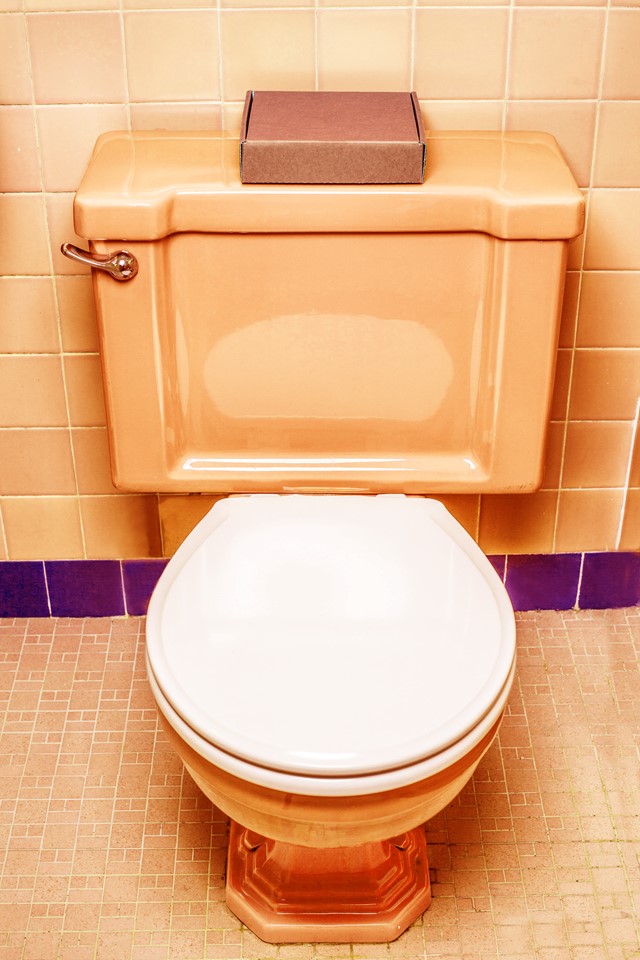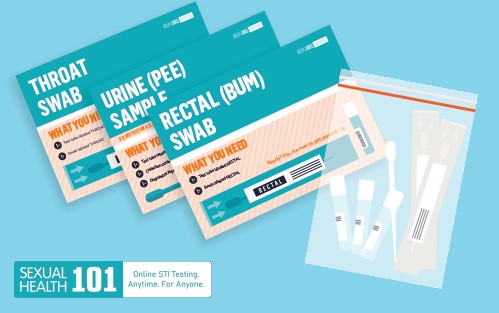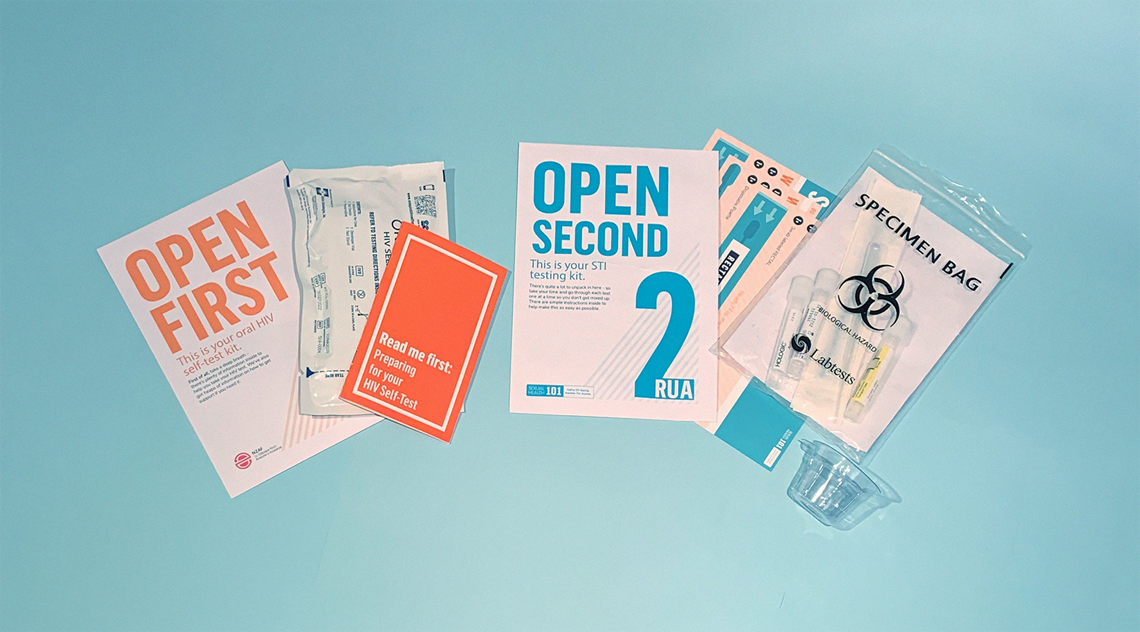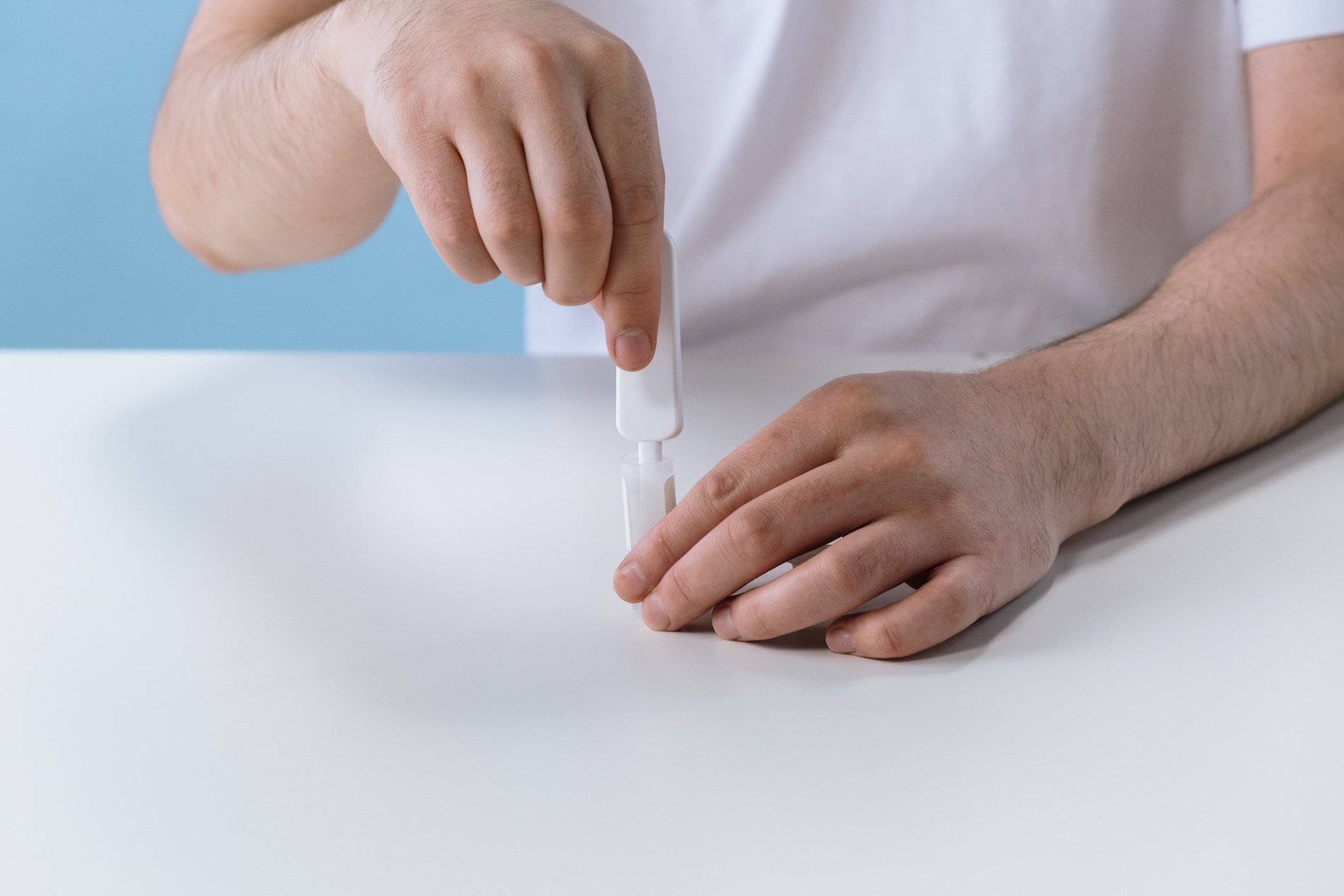Test yourself for STIs & HIV
Looking for a way to test for STIs and HIV a little more privately? Don’t live anywhere near a sexual health clinic, or it’s just hard for you to get to one?
We might have you covered.


Burnett Foundation Aotearoa has partnered with Sexual Health 101 to send out but full STI screening kits - so you can take all of the tests (syphilis, gonorrhoea, chlamydia and HIV) in one go!
Everything is super confidential. Your kit comes in discreet packaging and has simple instructions on how to do each test at home (or your work, your car, the gym - anywhere you feel comfortable). There is a blood test that you'll need to get at the lab, and we'll include a form with everything you need, all printed and prepaid. You just need to swing by a lab when it’s convenient for you and get that last test when you drop off your home samples.
We wanted to make sure folks outside of the main centres, or in living situations where they can’t get to testing places easily, can test regularly and affordably - so Burnett Foundation Aotearoa has subsidised these tests for those who are eligible, bringing the price right down to $20 total, ($40-$65 if not eligible). That includes courier fees, lab costs, the tests themselves and everything else!


What do I do when it arrives?
The first thing we’d recommend is to set up somewhere you’re comfortable and not likely to be interrupted. Then carefully read and follow the instructions on the cards and booklets provided.
There should be two packs inside your kit:
- One is the HIV self-test, which contains a guidebook, test instructions and the actual test items.
- The other should contain three guide cards that tell you which items you need from the bag provided and how to use them to get your other samples.
- What’s in the bag:
- Rectal (bum) swab
- Throat swab
- Front-hole or vaginal swabs if you need them
- Urine (pee) sample kit
- You’ll also find two forms. These are what tell the lab your tests have been paid for when you take, or courier, your samples in.

A few common questions?
How accurate are home tests over the tests I get in the GP’s office?
Most of the tests you’ll be gathering samples for at home are actually the same ones processed at your GP, so they’ll have the same level of accuracy. When it comes to the HIV self-test, it’s less about accuracy and more about the window period (usually up to 3 months, but usually 4-6 weeks). This is the time it can take from infection to being detectable by a rapid antibody test. This is because these tests measure your body’s response to infection, not HIV itself.
Can I use these tests as my baseline screening for getting PrEP?
This is going to have to be a question for your healthcare provider. Most providers will require a blood test for HIV as opposed to a rapid-swab and there also needs to be liver function testing before starting PrEP. But your provider may be happy for you to test for syphilis, gonorrhoea and chlamydia this way.
Not sure how often to test?
You can use our testing frequency tool to find out how often you should be testing, as well as sign up for helpful reminders to keep you on track.
Are you a man (cis or trans) who has sex with other men?
Are you a trans woman or non-binary person who has sex with men?
Are you in a closed, monogamous relationship?
Is your partner living with HIV?
Do you use a condom every time you have penetrative sex?
Do they have an undetectable viral load?
How many sexual partners have you had in the last 6 months?
How many sexual partners have you had in the last 6 months?
Once a year
Based on your answers, you are most likely at low risk of contracting HIV and should be testing for HIV & STIs once a year as part of an annual health check.
If you’re concerned about your personal risk, we would recommend speaking to your doctor and explaining why you think you might be at risk or find a testing service right for you here.
Once a year
Evidence of HIV can sometimes not be detected by a test for up to three months. If you and your partner decide that you no longer want to use condoms or PrEP you will need to be monogamous for at least three months, and then both receive a negative HIV test result.
After this, we'd recommend testing for HIV once a year, as part of an annual health check-up.
Get a test here and/or sign up to get testing reminders sent to you via text or email.
Because your partner is undetectable there is no risk of you contracting HIV.
You would need to be testing if your partner experiences a treatment interruption.
Every Six Months
If your partner doesn’t have an undetectable viral load then you should be using condoms or PrEP
We recommend getting an HIV test every six months.
Get a test here and/or sign up to get testing reminders sent to you via text or email.
Once a year
We recommend getting an HIV test and a full STI screen once a year.
With regular, consistent condom use it is unlikely that you have contracted HIV. But, other STIs like syphilis and gonorrhoea can still be easily transmitted through oral sex, rimming or even using spit as lube.
Get a test here and/or sign up to get testing reminders sent to you via text or email.
Every Six Months
We recommend getting an HIV test and a full STI screen every six months.
With regular, consistent condom use it is unlikely that you have contracted HIV. But, other STIs like syphilis and gonorrhoea can still be easily transmitted through oral sex, rimming or even using spit as lube.
Get a test here and/or sign up to get testing reminders sent to you via text or email.
Every Three months
Based on your answers, we recommend getting an HIV test and a full STI screen every three months.
With regular, consistent condom use it is unlikely that you have contracted HIV. But, other STIs like syphilis and gonorrhoea can still be easily transmitted through oral sex, rimming or even using spit as lube.
Get a test here and/or sign up to get testing reminders sent to you via text.
Once a year
Based on your answers, we recommend getting an HIV test and a full STI screen once a year.
Get a test here and/or sign up to get testing reminders sent to you via text or email.
As you struggle with consistent condom use, you should consider taking PrEP to stay safe.
Every Six Months
Based on your answers, we recommend getting an HIV test and a full STI screen every six months.
Get a test here and/or sign up to get testing reminders sent to you via text or email.
As you struggle with consistent condom use, you should consider taking PrEP to stay safe.
Every Three Months
If you're having unprotected sex with casual partners, then you're at high risk of HIV. You need to be testing every three months.
Get a test here and/or sign up to get testing reminders sent to you via text.
As you struggle with consistent condom use, you should consider taking PrEP to stay safe.



